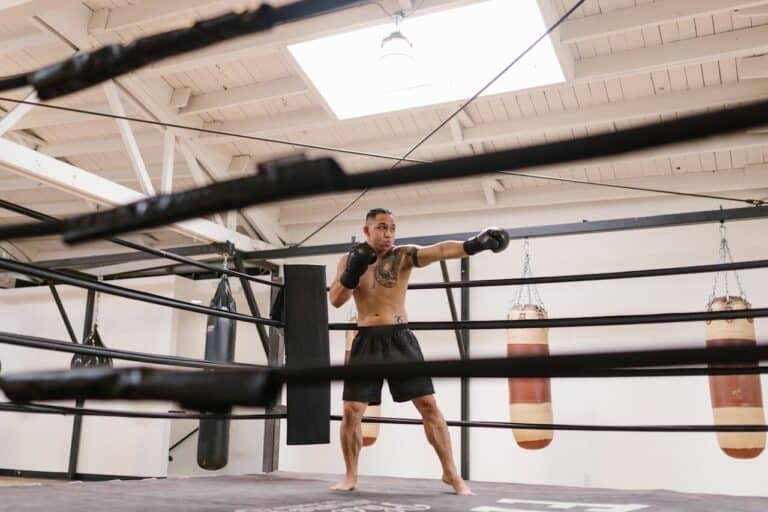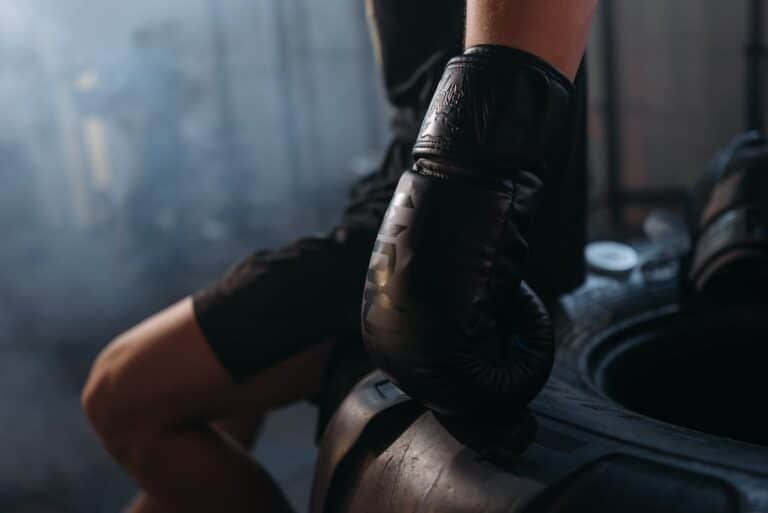When you start boxing, one of the biggest challenges is learning how to stop flinching in boxing and how to see punches coming. Flinching is a natural reaction that protects your body, but in the ring, it can disrupt your rhythm and defence.
In this guide, we will break down why flinching happens and how you can train yourself to stay calm, read punches, and respond with confidence.
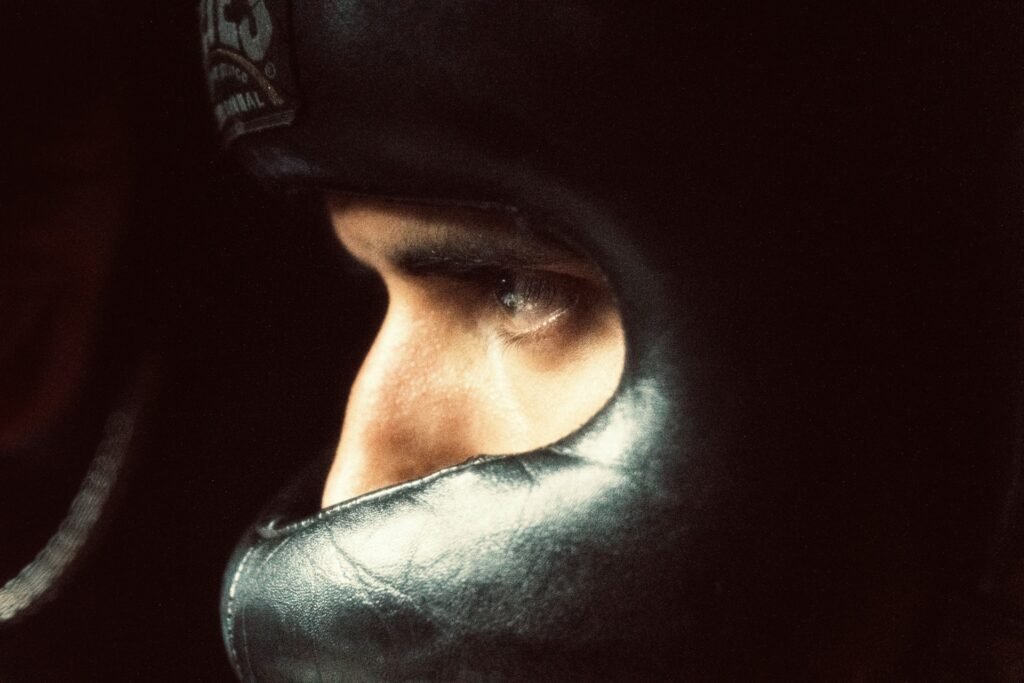
Why Flinching Happens in Boxing
Understanding how to overcome the instinct to flinch in boxing starts with recognising why your body reacts that way. Flinching is your body’s built-in protection system. When something moves quickly toward your face, your brain triggers a reflex to shield yourself.
While that reaction is beneficial in everyday situations, it can actually work against you in boxing. If you close your eyes or turn away, you lose sight of the punch and open yourself up to more shots.
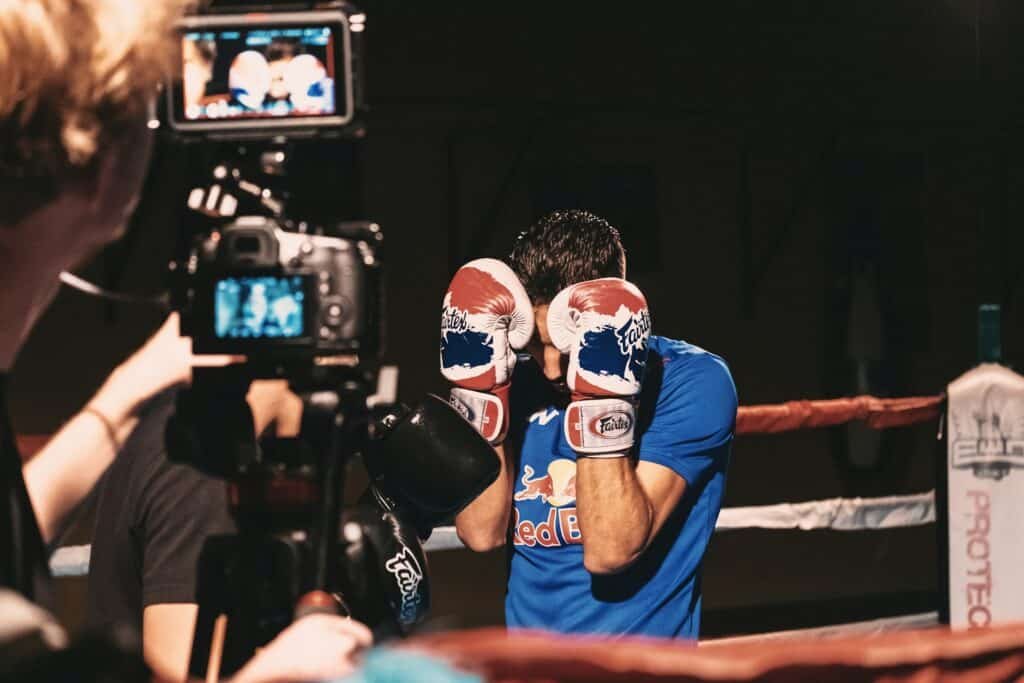
Recognising that flinching is a natural response is the first step toward addressing it. You are not scared or weak – your body simply needs to be retrained to stay composed under pressure and learn how to stop flinching in boxing during live training.
How to Train Your Eyes and Stop Flinching in Boxing
To stop flinching, you need to improve your ability to read punches early. Most beginners only react once a glove is already close, but trained eyes can spot the signs before a punch is thrown. Watch your opponent’s shoulders, hips, and feet during drills. This kind of awareness is essential when learning how to stop flinching in boxing.
Here are a few exercises that can help:
- Shadow sparring: Have a partner throw slow punches while you focus on keeping your eyes open and relaxed.
- Mirror drill: Stand in a shadowbox position in front of a mirror and observe your movements to enhance awareness.
- Focus mitt reactions: Ask your coach to flash the mitts randomly while you stay calm and track them visually. Developing methods to stop your natural reaction is key.
These simple drills train your brain to stay alert instead of panicking.

Stay Relaxed to Stop Flinching in Boxing
Learning how to avoid reflexively flinching in boxing means teaching your body to stay relaxed even when punches come close. When you tighten up or hold your breath, your vision narrows and you lose awareness.
Focus on breathing smoothly through your nose and exhaling as you move. Keep your shoulders loose and your stance balanced, both help you practise how to stop flinching in boxing by teaching your body to stay calm.

A calm fighter sees more, reacts faster (head movement, counters, etc), and wastes less energy. Learning to relax under pressure is one of the most significant steps toward stopping flinches.
Spar at a Comfortable Pace to See Punches Better
You do not need to go full speed to get better at seeing punches. Start with light, controlled sparring. Slow sparring is one of the safest and most effective ways to practise avoiding the instinct to flinch when boxing. As you improve, you can gradually increase the pace and power.
This approach builds confidence and helps your body understand that you are safe even when punches come close.
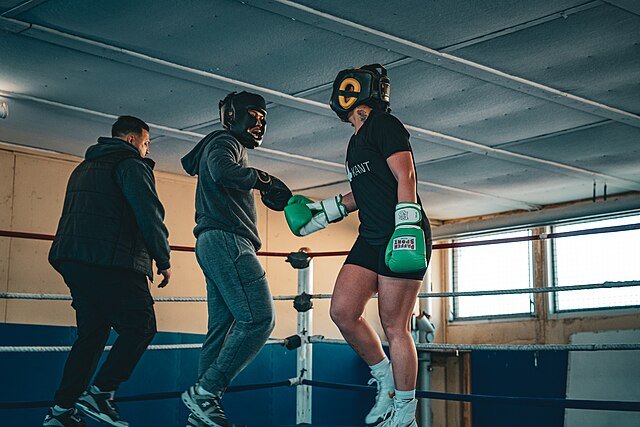
Soft, playful sparring will be better to start with; hard hits can cause damage and make you more likely to flinch in the future.
Build Confidence Through Repetition
The more time you spend seeing punches, the calmer you become. Controlled contact and consistent training teach your mind that it does not need to panic. Flinching fades with experience, just like any other boxing errors and habits.

Stick with your drills, stay disciplined, and trust your defence. Over time, your eyes will adjust, your reactions will sharpen, and you will be able to stay focused even during fast exchanges.
Final Thoughts on How to Stop Flinching in Boxing
Every beginner flinches at first. It is part of the learning process. What separates good boxers from average ones is the ability to stay calm under pressure. Train your eyes, relax your body, and keep your breathing steady.
As you gain experience, you will start to see punches before they land, and your reactions will become automatic. With time and consistency, you will find that the instinct to flinch disappears completely.
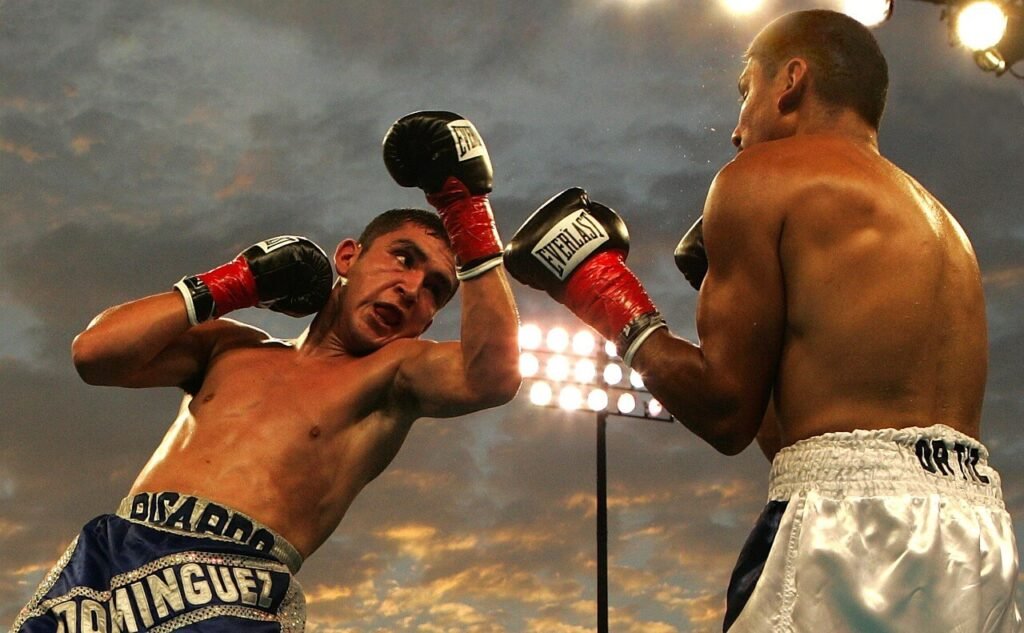
If you are just starting your boxing journey, check out our guide to the best boxing gloves for beginners and the best boxing gloves under £50 to make sure you train safely and confidently without breaking the bank.

